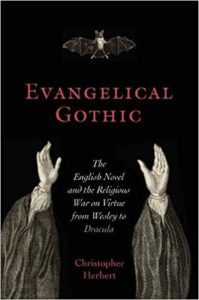On October 3, 2020, UC Berkeley celebrated the 150th anniversary of admitting women as undergraduate students. The 150 Years of Women at Berkeley History Project has responded to Chancellor Carol Christ’s call to “convert this anniversary into a lasting archive” by documenting the struggles and achievements of students, faculty, and staff since 1872 — from the earliest days of “co-education,” to the “gender revolution” of the sixties and seventies, and beyond.
To join in the commemoration, the Townsend Center presents An Ongoing Revolution: Reflections on Gendered Struggles and Feminist Scholarship in the Humanities. Faculty members representing Comparative Literature, English, East Asian Languages & Cultures, History of Art, Music, and Spanish & Portuguese gather for a discussion of the role and experience of women at Berkeley, asking such questions as, how have departmental and disciplinary cultures changed over the years? How have issues of gender and feminism been brought to bear on scholarship and teaching? What has been the changing relationship between political battles in the streets and research in the academy? Whose stories have we lost track of as institutional life continues to transform? What fights are still to come?
Representations board member Catherine Gallagher (English) will moderate, joined by former board member Darcy Grimaldo Grigsby (History of Art), Francine Masiello (Comparative Literature and Spanish & Portuguese), current board member Mary Ann Smart (Music), and Sophie Volpp (Comparative Literature and East Asian Languages & Cultures).
About the Speakers:
Catherine Gallagher is Ida May and William J. Eggers Professor Emerita in the Department of English, and co-chair of the 150 Years of Women at Berkeley History Project. A long-standing board member of Representations, she is the author of a number of articles, including “The Politics of Culture and the Debate over Representation” (Representations 5), “George Eliot: Immanent Victorian” (Representations 90), and “The Formalism of Military History” (Representations 104).
Darcy Grimaldo Grigsby is the Richard and Rhoda Goldman Distinguished Professor in the Arts and Humanities and winner of the Clark Prize for Excellence in Arts Writing. A former board member of Representations, her essays “Rumor, Contagion, and Colonization in Gros’s Plague-Stricken of Jaffa (1804)” (Representations 51), “Patina, Painting, and Portentous Somethings” (Representations 78), and “Negative-Positive Truths” (Representations 113) have appeared in the journal.
Francine Masiello is Sidney and Margaret Ancker Professor Emerita in the Departments of Comparative Literature and Spanish & Portuguese.
Mary Ann Smart is Gladyce Arata Terrill Professor of Music. A current board member of Representations, she is the co-editer the special forum on “Quirk Historicism” in Representations 132 and is the author of “The Queen and the Flirt” in Representations 104.
Sophie Volpp, professor of East Asian Languages & Cultures and Comparative Literature, specializes in Chinese literature of the 16th through 19th centuries.
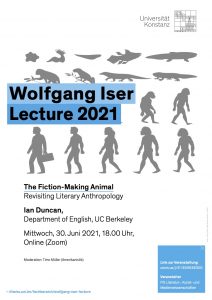 Representations board member Ian Duncan will give the 2021 Wolfgang Iser lecture on June 30, 2021 (9:00am PDT). The talk, entitled “The Fiction-Making Animal: Revisiting Literary Anthropology,” will be streamed over Zoom here.
Representations board member Ian Duncan will give the 2021 Wolfgang Iser lecture on June 30, 2021 (9:00am PDT). The talk, entitled “The Fiction-Making Animal: Revisiting Literary Anthropology,” will be streamed over Zoom here.

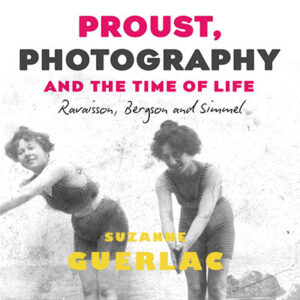 Through an engagement with the philosophies of Marcel Proust’s contemporaries Félix Ravaisson, Henri Bergson, and Georg Simmel, author Suzanne Guerlac (French) presents an original reading of Proust’s magnum opus, Remembrance of Things Past (A la recherche du temps perdu). Challenging traditional interpretations, Guerlac argues in Proust, Photography, and the Time of Life (Bloomsbury, 2020) that Proust’s novel is not a melancholic text, but one that records the dynamic time of change and the complex vitality of the real.
Through an engagement with the philosophies of Marcel Proust’s contemporaries Félix Ravaisson, Henri Bergson, and Georg Simmel, author Suzanne Guerlac (French) presents an original reading of Proust’s magnum opus, Remembrance of Things Past (A la recherche du temps perdu). Challenging traditional interpretations, Guerlac argues in Proust, Photography, and the Time of Life (Bloomsbury, 2020) that Proust’s novel is not a melancholic text, but one that records the dynamic time of change and the complex vitality of the real.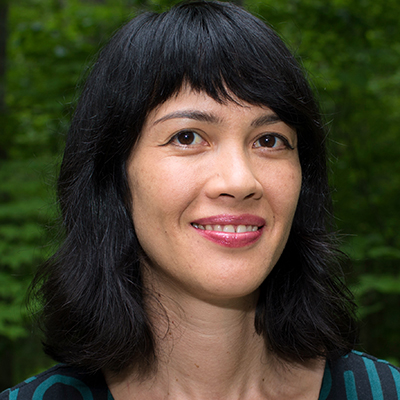
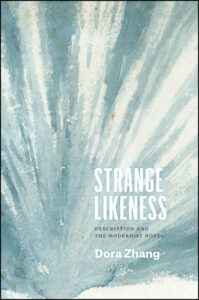
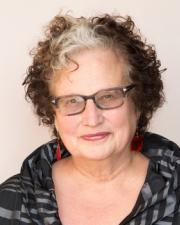


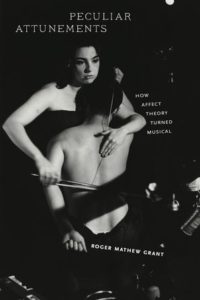
 Roger Mathew Grant
Roger Mathew Grant